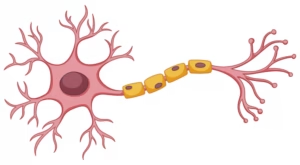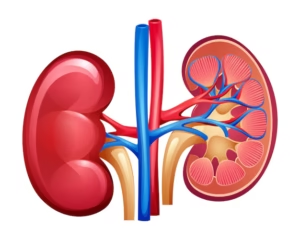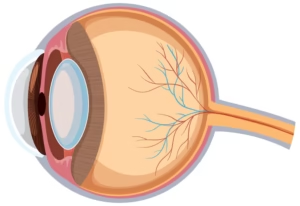Most people think diabetes is just about sugar numbers. But high blood sugar doesn’t just stay in your blood. Over time, it quietly affects nerves, kidneys, and eyes. And usually, you won’t notice until it starts changing your daily life.
At Shifa Al Khobar, we see this a lot. Patients come in thinking everything’s fine, then say, “Wait, my feet feel numb,” or “My vision isn’t as sharp as before.” Knowing what’s happening inside your body helps catch problems early.
Your Nerves Might Be the First to Feel It

Nerves are like tiny wires carrying messages from your brain to the rest of your body. High sugar weakens them. Tiny blood vessels that feed nerves get damaged, and nerves can stop sending messages properly.
Most people notice it first in hands or feet; tingling, numbness, or burning. Some stop noticing small cuts or blisters, which can lead to infections.
Little Clues You Can’t Ignore
Early signs are subtle. Socks feel tight, shoes pinch, feet tingle at night. Easy to ignore, right? But these small signals are your body warning you. Paying attention can prevent bigger problems later.
Kidneys Are Quietly Working Hard

Your kidneys filter your blood and balance fluids. High sugar damages tiny vessels in them. Protein can leak into urine, often unnoticed at first.
Later, swelling can appear in feet or around the eyes. Blood pressure may rise. Fatigue can sneak in.
How to Spot Early Kidney Problems
Swollen ankles, puffiness, foamy urine, or unexpected tiredness, these can be clues. High blood pressure popping up unexpectedly is another sign. Catching these early can slow damage before it gets serious.
Eyes: A Window You Might Overlook

High sugar weakens tiny blood vessels in your eyes. Fluid can leak, parts of the retina get less oxygen, and vision can change slowly.
You might see blurred vision, dark spots, trouble at night, or colors looking dull. Sometimes it’s subtle, like your phone screen being harder to read after a meal.
Tiny Changes in Vision Matter
Colors fading, blurry objects, shadows or floaters, these are warning signs. Even if your vision feels fine most of the time, noticing small differences early protects your eyesight.
How Everything Connects
High sugar damages blood vessels all over your body. That’s why nerve, kidney, and eye problems often appear together. Numb feet can make injuries worse. Swollen kidneys can affect blood pressure, which affects vision. Keeping sugar steady, staying active, and eating well helps protect multiple organs.
Small Daily Habits Can Make a Big Difference
You don’t need drastic changes. Walk a bit after meals, eat more vegetables, drink water instead of sugary drinks, check your feet, and pay attention to small vision changes. Tiny habits, done consistently, can slow damage.
At Shifa Al Khobar, we tell patients to notice the small stuff every day. That little blister on your foot, tingling in your hands, blurry vision,it all matters.
Contact Us
If you notice warning signs or want to check your health, reach out to Shifa Al Khobar.
When do complications start?
They can start quietly within a few years of high sugar, even if you don’t notice anything.
Can nerve, kidney, or eye damage be reversed?
Severe damage usually isn’t reversible. Early issues can sometimes improve or slow down with consistent care.
What signs should I watch for?
Tingling, numbness, swelling, blurry vision, fatigue, or cuts that heal slowly.
Why do these complications happen together?
High sugar damages small blood vessels everywhere, so multiple organs are affected.
How can I protect myself?
Keep sugar steady, stay active, eat well, notice small changes, and act consistently.

